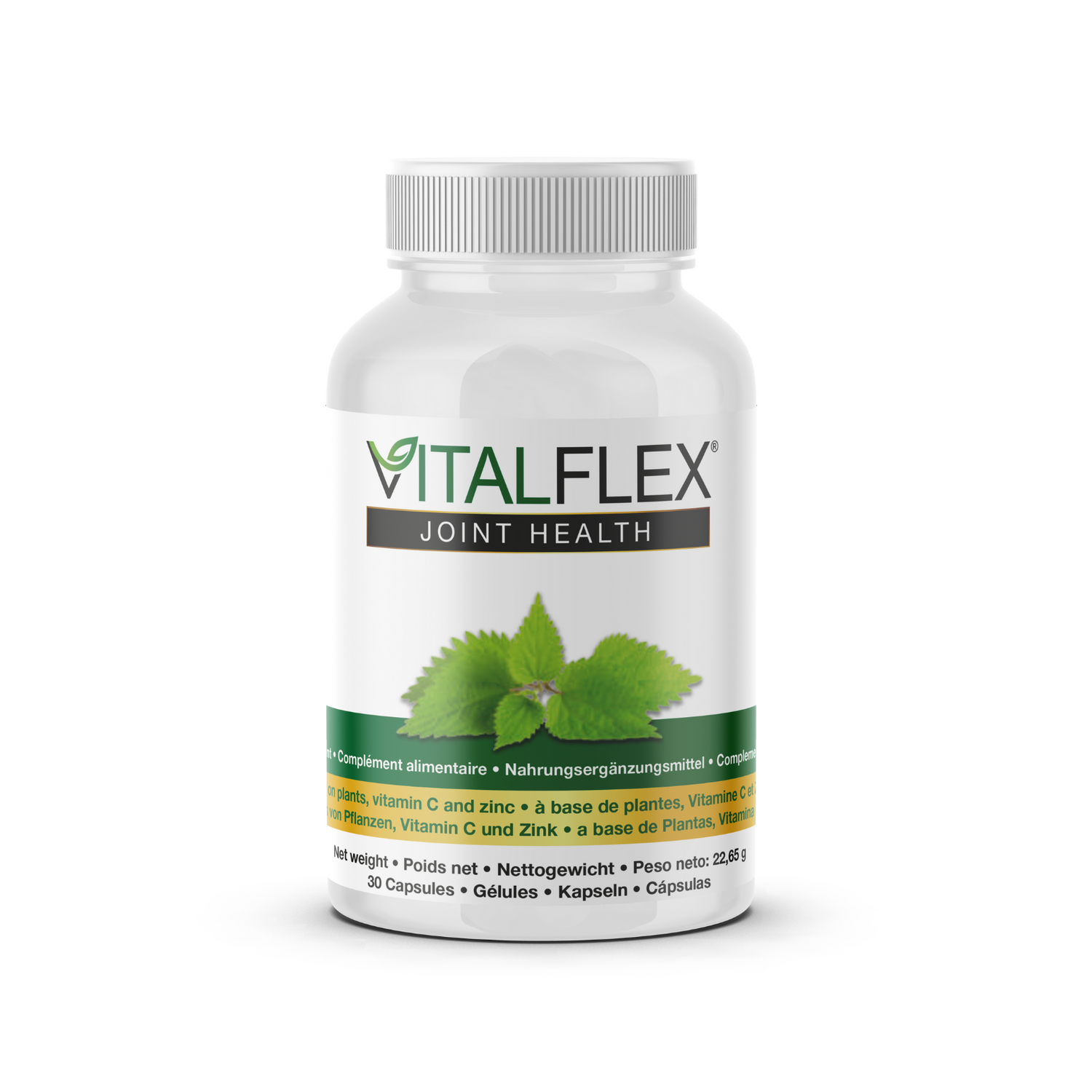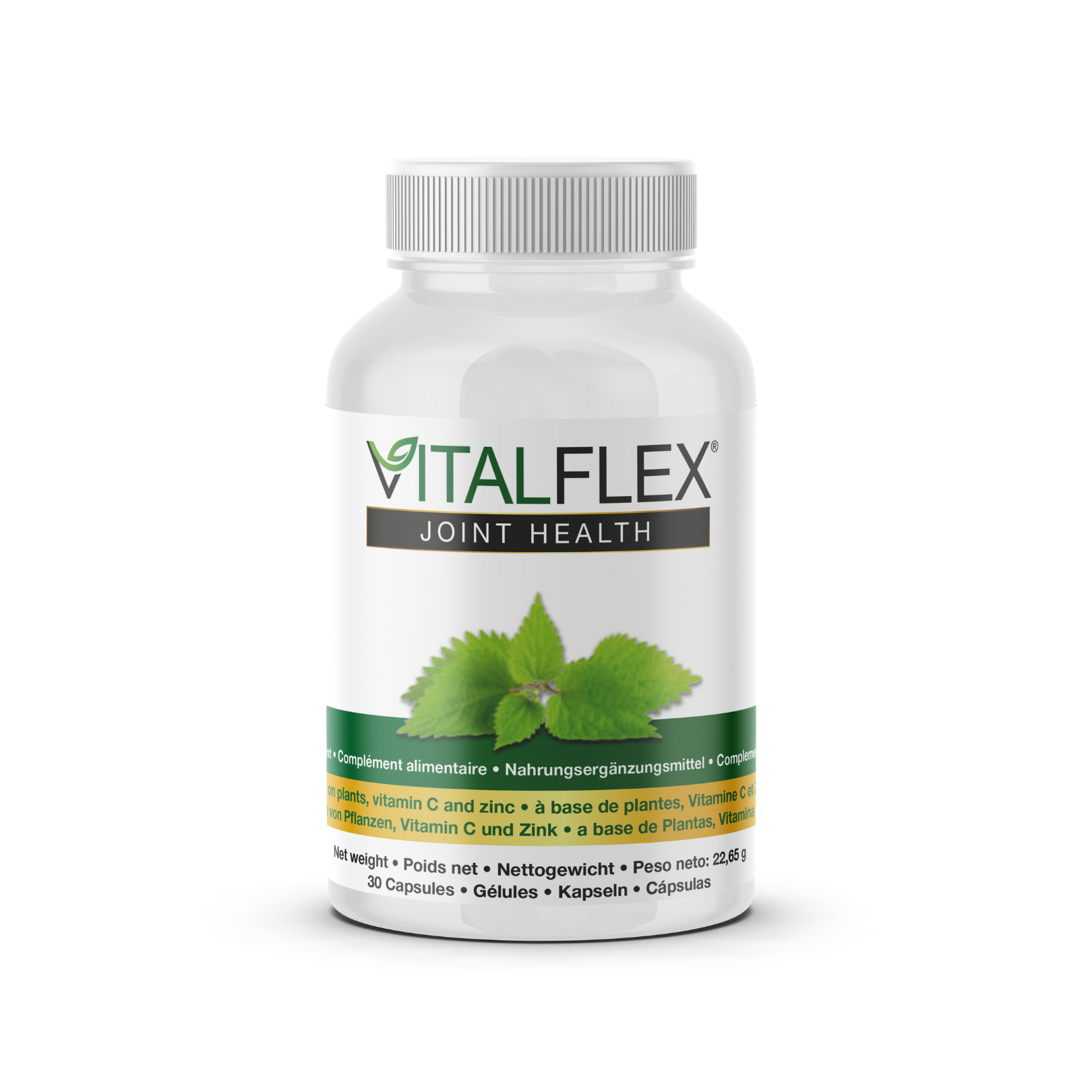Have you ever wondered what factors can influence the health of your joints?
While it is true that there are many factors at play, lifestyle is perhaps one of the most important. Athletes and older people in particular should pay attention to their daily routine to keep their joints healthy. In this blog, we will discuss some simple steps we can all take to achieve the best joint health possible. You will be able to learn exercises, nutritional plans and treatments that will do wonders for your body in general and help improve the health of your joints. Don't miss anything!
Understanding the anatomy of your joints
The anatomy of our joints is often underestimated, and yet understanding the details involved in their well-being and mobility can make a big difference. Joints are important because they allow us to perform a wide range of movements, from simple movement of the neck to deep flexion to perform an inverted posture. These structures are composed to allow us to move with flexibility but stability as well. Tendons, muscle, ligaments, bone tissue and cartilage work together to keep our joint system optimal. We must learn about each of these parts and be aware that taking proper care of them requires a balance between physical activity, rest and healthy eating. By understanding how all these parts work together, we can have a functional and healthy design to preserve our quality of life at advanced ages.
The impact of exercise on joint health
Exercise has many benefits for the health of our joints. When you exercise, the muscles that support the body work to strengthen and compress the bones, improving their stability and increasing their resistance to injury and disease. This also helps in the regeneration of cartilage and joint tissues if they suffer damage, thus promoting better mobility and practicing safe physical activity without feeling pain. On the other hand, exercise also stimulates blood flow around the joints, improving hydration and nutrition by helping the transport of essential nutrients. All of this contributes enormously to maintaining healthy joints, regardless of how old or young we are.
If you have a history of joint discomfort, regular exercise can have a significant impact on joint health. When done correctly, exercise can help strengthen muscles around joints and improve flexibility, which can reduce the risk of injury and improve joint function. However, it is important to note that some types of exercise can be harmful to the joints if performed incorrectly or with improper technique.
To maintain joint health, low-impact exercises such as walking, swimming, cycling, and yoga are recommended. These types of exercise don't put too much stress on the joints and can help improve circulation and flexibility. It is also recommended to perform muscle strengthening exercises to improve joint stability and reduce the risk of injury.
Foods that contribute to joint health
Joints are complex structures in the human body that allow movement and flexibility. As we age, joints can experience wear and tear and suffer from problems such as arthritis. Diet can play an important role in joint health. Some foods contain nutrients that help maintain joint health. For example, omega-3 fatty acids, found in foods such as fish, nuts, and seeds, have anti-inflammatory properties and can help reduce pain and inflammation in the joints. Additionally, fruits and vegetables rich in antioxidants, such as berries, broccoli, and spinach, can help reduce inflammation in the body and prevent cell damage.
Another important nutrient for joint health is calcium, which is found in foods such as milk, cheese, and yogurt. Calcium is essential for maintaining bone strength and preventing osteoporosis, a condition that weakens bones and increases the risk of fractures. Vitamin D, found in foods such as eggs, fish and mushrooms, has also been shown to help improve the body's absorption of calcium. Additionally, some studies suggest that vitamin C, found in fruits and vegetables such as citrus fruits and kiwi, may help protect joint cartilage and reduce the risk of osteoarthritis.
In short, a balanced diet that includes a variety of healthy foods can contribute to joint health. Foods rich in omega-3 fatty acids, antioxidants, calcium, and vitamin D can help prevent inflammation, strengthen bones, and protect joint cartilage. It is important to remember that a healthy diet should be combined with regular exercise and other healthy habits to obtain the maximum benefit for overall health.
The benefits of nutritional supplements to improve the health of your bones and joints
Care and prevention are key to maintaining healthy bones and joints. A healthy diet is a good start, but to get the right nutrients for strong bone mass, many turn to nutritional supplements. These can provide the calcium needed to slow bone loss and improve bone strength. Additionally, other nutrients such as vitamin D contribute to the breakdown of cartilage over time, helping to keep key areas such as joints healthy. Nutritional supplements are a proven way to significantly reduce bone and joint damage.
The importance of adequate rest to maintain good bone and joint health
Resting adequately is one of the most important aspects of having and maintaining good bone and joint health. Resting allows us to regenerate and respect the biological rhythm that our body needs to rest, relax and recharge energy. During this time of rest, muscle pressure decreases, allowing the bones to increase their resistance and preventing major injuries, including fractures. In addition, it promotes joint flexibility by avoiding excessive attachment of tendons or ligaments around the bone. In summary, it is vital to respect rest schedules to maintain good bone and joint health regardless of age.
How to prevent joint injuries
Preventing joint injuries is an important part of maintaining good health and quality of life. It is recommended that all adults engage in moderate physical activity such as walking, yoga, or gentle movement throughout the day to strengthen muscles and improve balance. Some relaxation techniques may also be beneficial to reduce muscle tension and avoid ligament injuries. Wearing appropriate clothing and footwear for exercise is important to prevent injuries as well as knowing the limits of your own body, resting between sets or exercise sessions and drinking water regularly to keep your joints hydrated. By listening to your body you can detect possible problems before they become serious injuries, and doing correct form during exercises will help prevent joint problems.
Conclusion
To conclude, adopting good bone and joint health habits is essential. Understanding the anatomy of your joints and how regular exercise influences their health is important. By eating nutritious foods and taking nutritional supplements you will be able to maximize the health of your bones and joints. Getting adequate rest will allow you to maintain an optimal balance between physical activity and inactivity. Finally, preventing injuries through self-care and strengthening the muscles around the joints will eliminate potential risks and prevent further complications in the long term. Maintaining your well-being through active care can provide you with many benefits in your daily life. Do it right now!













